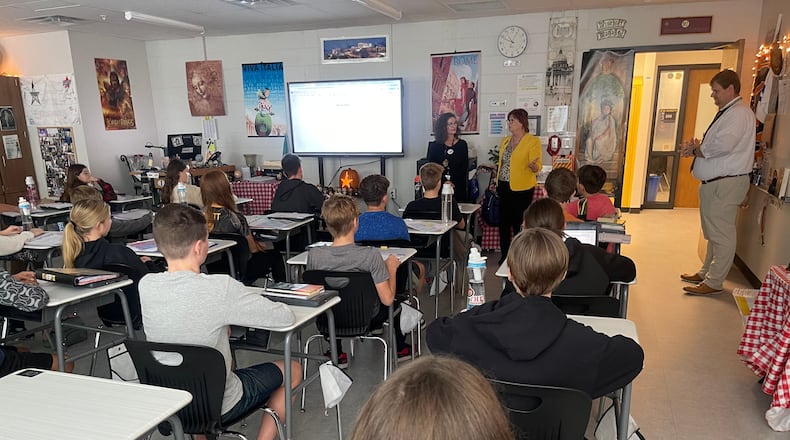A resolution stating the necessity to raise the additional funds through a levy on the May 6, 2025 ballot was approved by the board at the Nov. 21 meeting.
“We have been deficit spending since 2022, which means our expenses have exceeded our revenue, and that is not a position that you can maintain,” said Superintendent Brian Kuhn.
Kuhn said the board will still have to vote a second time to officially put the levy on the ballot. He anticipates to have a resolution to proceed with the second step of the ballot process at the December meeting, which is scheduled for 6:30 p.m. Dec. 19.
This levy, if passed, would only tax earned income, including salary, self employment, wages and tips, Kuhn said. It would not include pension, retirement, social security, disability or unemployment funds. For a resident with $50,000 in annual taxable income, a 1% income tax would cost $500 per year.
The district’s last operating levy for new money was passed in 2014.
“At that time, we told our community the data the projection said — we think we can make it four years before we have to come back and ask for new operating money. Now a decade later, we made it 10 years, and so we’re at the point where we need to ask for additional operating expenses,” Kuhn said, explaining it would go toward salaries, benefits and things to allow them to maintain current programs and services.
Kuhn said Clark-Shawnee decided to do an earned income tax levy instead of a property tax levy because of the biggest challenge related to tax abatement on the development in Bridgewater and the future development of Melody Parks.
“The taxes that they pay would get diverted, even the new tax. Even if we put a new tax on, that would get diverted and portions of it would go to the developer. ... An income tax, as it stands right now under the law, it cannot be diverted, so all of our residents who have earned income, no matter where they live, the revenue that’s generated will come to the schools,” he said.
“Our community has said we can’t do a property tax where you’re not getting the revenue from everyone who lives here. That’s in the message we’ve heard from our community,” he added.
Kuhn said the main key point is the definition of an earned income tax, and that the district will have to educate the community on it. He said a committee will be formed to help with the campaign because the superintendent, treasurer and board are limited in the levy involvement.
District officials said they are happy to answer any questions from community members, who can call them at the board office, because “these are complex issues and we want our community to understand why we’re going for earned income tax and not a property tax, because I think that’s important.”
According to the school district’s five-year financial forecast, total revenues have grown by $2 million recently, from $20.77 million in 2021-22, to $22.77 million in 2023-24. But total expenditures grew slightly faster, from $20.77 million to $23.14 million in that same span.
That means the district was about $375,000 in the red each of the past two years. But they project larger annual deficits of $1.35 million and $1.09 million the next two years, according to the forecast document. Most of that is due to a projected increase in spending, largely from salaries and benefits.
As of this summer, the district had about $5.4 million in the bank, or about 23% of a year’s expenses. That’s lower than the average Miami Valley school district, but not yet at a crisis level.
About the Author

